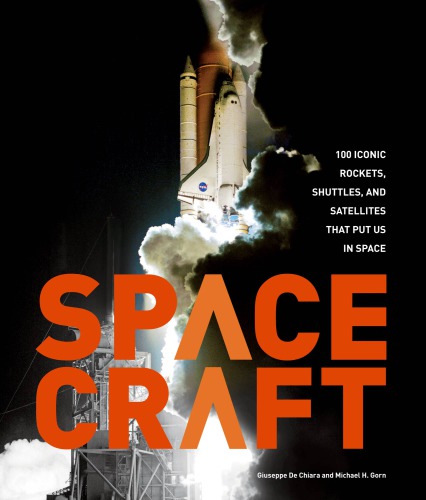

Most ebook files are in PDF format, so you can easily read them using various software such as Foxit Reader or directly on the Google Chrome browser.
Some ebook files are released by publishers in other formats such as .awz, .mobi, .epub, .fb2, etc. You may need to install specific software to read these formats on mobile/PC, such as Calibre.
Please read the tutorial at this link: https://ebookbell.com/faq
We offer FREE conversion to the popular formats you request; however, this may take some time. Therefore, right after payment, please email us, and we will try to provide the service as quickly as possible.
For some exceptional file formats or broken links (if any), please refrain from opening any disputes. Instead, email us first, and we will try to assist within a maximum of 6 hours.
EbookBell Team

5.0
100 reviewsSpacecraft takes a long look at humankind's attempts and advances in leaving Earth through incredible illustrations and authoritatively written profiles on Sputnik, the International Space Station, and beyond.
In 1957, the world looked on with both uncertainty and amazement as the Soviet Union launched Sputnik 1, the first man-made orbiter. Sputnik 1 would spend three months circling Earth every 98 minutes and covering 71 million miles in the process. The world’s space programs have traveled far (literally and figuratively) since then, and the spacecraft they have developed and deployed represent almost unthinkable advances for such a relatively short period.
This ambitiously illustrated aerospace history profiles and depicts spacecraft from*Sputnik 1 *through the International Space Station, and*everything in between, including concepts that have yet to actually venture outside the Earth’s atmosphere. Illustrator and aerospace professional Giuseppe De Chiara teams up with aerospace historian Michael Gorn to present a huge, profusely illustrated, and authoritatively written collection of profiles depicting and describing the *design, development, and deployment of these manned and unmanned spacecraft**. Satellites, capsules, spaceplanes, rockets, and space stations are illustrated in multiple-view, sometimes cross-section, and in many cases shown in archival period photography to provide further historical context.
Dividing the book by era, De Chiara and Gorn feature spacecraft not only from the United States and Soviet Union/Russia, but also from the European Space Agency and China. The marvels examined in this volume include the rockets Energia, Falcon 9, and VEGA; the Hubble Space Telescope; the Cassini space probe; and the Mars rovers, Opportunity and Curiosity.
Authoritatively written and profusely illustrated with more than 200 stunning artworks, Spacecraft: 100 Iconic Rockets, Shuttles, and Satellites That Put Us in Space is sure to